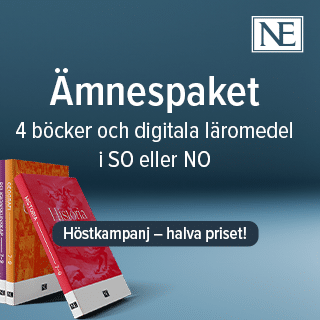Becoming and being a language teacher: evolving cognitions in the transition from student to teacher
Lärarnas uppfattningar om lärarblivandet är till en början ganska diffusa för att efter hand bli alltmer mångfacetterade, komplexa och sammanlänkade, visar Marina Bendtsen.
Marina Bendtsen
Professor emeritus Kaj Sjöholm Åbo Akademi Professor Liselott Forsman Åbo Akademi
Åbo Akademi
2016-10-21
Becoming and being a language teacher: evolving cognitions in the transition from student to teacher
Becoming and being a language teacher: evolving cognitions in the transition from student to teacher
This thesis focuses on the process of becoming and being a teacher as viewed by prospective teachers themselves and aims to contribute to the understanding of how teachers’ professional development can be promoted and supported during the early stages of professional learning. Studies have shown that our beliefs affect how and what we learn in a given situation and thus attempts to provide support for teachers’ professional development need to be based on an understanding of the learners’ perspective. Besides looking into teachers’ views of teacher learning, the study also scrutinises teachers’ views of the teaching profession, as it is assumed that a person’s learning preferences are affected by how one perceives the job of the teacher.
The initial phases of professional learning, including the transition from teacher education into working life, have been identified as a highly influential period in terms of learning and development. As teachers evolve and develop, different needs are likely to come into focus and it was therefore considered important to take the whole transitional period into account. Thus, a longitudinal approach was chosen, enabling a follow up on how teachers’ views evolve as they progress from university into working life.
The empirical study was carried out in a Finland-Swedish context and focuses on the evolving cognitions of a cohort of prospective language teachers (N=20) as they progress through teacher education and into the workplace. The data are in the form of narrative essays and interviews and has been gathered in three different phases: 1) when the participants were student teachers 2) after the participants had completed teacher education and 3) after they had worked one or two years as teachers. The study has a longitudinal scope, is qualitative in nature and informed by a hermeneutic phenomenological approach. The two perspectives, becoming and being a teacher, are studied through the theoretical lens of two different, but intertwined strands of research: theories of teacher learning and professional development, on the one hand, and teacher cognition research, on the other hand.
The results regarding the teachers’ views of the teaching profession during the early transitional phases of professional learning show that different aspects of the job are in focus at different times. From an initial focus on aspects of the job related to the classroom arena (e.g. teaching and relations to pupils), the arenas and scope of the job gradually broaden towards heightened concerns with internal aspects of the job (e.g. building a teacher identity) along with a heightened awareness of the teacher’s role on the school and societal arenas. As the views broaden, they become more holistic and interconnected, but also more complex and diversified, leaving the teachers in an emotional and tensional turmoil, where they have to prioritise, set limits and come to terms with clashing beliefs.
When it comes to the teachers’ views of teacher learning, the results show that on a group level, a broad variety of learning opportunities are recognised. Individual preferences could be noted, as well as differences in terms of how the different learning opportunities are viewed and which functions these are seen to perform. The teachers’ views gradually evolve from more vague and narrow, towards more diversified, complex and interconnected. Furthermore, the findings show that practical experiences and experiential forms of learning are considered central throughout, whereas collaborative and more autonomous forms of learning are afforded less emphasis, especially with regard to learning in teacher education. Furthermore, the role of theory is largely downplayed and views regarding the functions of theory relatively narrow, as the participants found it difficult to connect these elements with the teacher’s job. The results thus highlight a need to attend to how elements of theory and practice are connected in teacher education and to broaden prospective teachers’ views regarding different forms of learning and to heighten their awareness of the intricate processes involved.
The thesis concludes with a proposal of a holistic, dynamic and interconnected model of professional development, centering around three main arenas for teacher learning: the Practice arena, the Academic arena and the Collegial arena.
Relaterade länkar

Fritidshem
 Åk F–6
Åk F–6 Matematikångest
 Åk 4–Vux
Åk 4–Vux 






